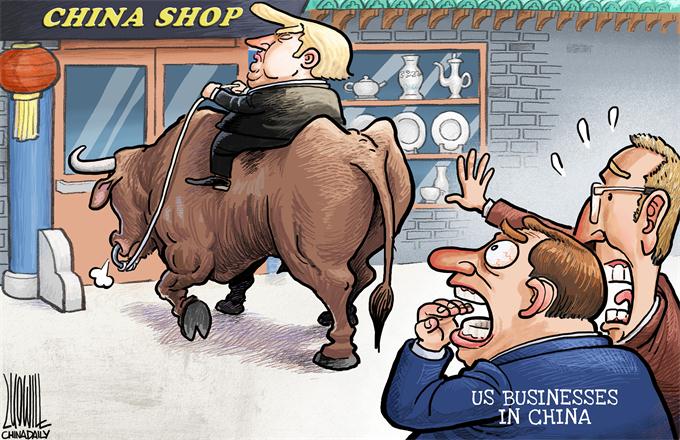Clear law needed for online copyright cases
 |
|
Girls promote games by Shanghai Giant Network Technology Co at an industry expo held in Beijing. PROVIDED TO CHINA DAILY |
Adapting popular literary works for internet programs and games has become a trend since 2013, creating a serious problem because they could constitute violation of online intellectual property rights. And with the online content industry becoming increasingly prosperous, copyright infringements have become more and more serious, especially in online games.
Many online games infringe the copyright of famous novels, cartoons, movies and television plays as well as other online games.
According to Beijing Haidian district court, copyright infringement cases involving online games increased 173.5 percent year-on-year in 2015.
In many cases, online programs and games "borrow" the names of characters, images, plots and even entire story lines from the original works, combining them into "new" plots and creating "new" works.
According to the Copyright Law, people can adapt or use existing works for their productions to create "new" works, but they should not violate the original copyright holders' legal rights. This means people can only adapt others' works after obtaining permission from those who hold the copyright for the original works.
According to the Copyright Law, the "idea-expression dichotomy" limits the scope of copyright protection by differentiating an idea from the expression or manifestation of that idea. This, in a sense, means the Copyright Law only protects expressions but not the ideas that give rise to the expressions. As such, the external expressions of a story such as characters and images are protected by the Copyright Law, so are the contents of stories.
Therefore, the story line, theme and elements of a work are all ideas, which are not protected by the Copyright Law. For instance, if one person suggests a simple story should be made into a film but doesn't provide any detailed content, what he or she proposes is regarded as idea without specific content and could be expressed in various forms. Under such circumstances, even if his or her idea is adopted, he/she can hardly be regarded as the co-creator of the work, because he/she doesn't provide its external expression or specific content beyond just the idea.
In trials of online game copyright infringement cases, Chinese courts always use the "idea-expression dichotomy" to pass verdicts. Earlier this year, Chinese kung fu novelist Wen Rui'an sued a mobile game company which used five major characters from his novels for infringing his copyright and claimed compensation. The Beijing Haidian district court said the five major characters the mobile game used is a significant part of Wen's novel and an important expression of the kung fu spirit in his novels. The court therefore ruled that the mobile game company should stop infringing Wen's copyright and pay him compensation for violating his rights.
In other words, if a person "uses" expressions from a work without the permission of the original author, he/she is infringing the author's copyright.
But there is a controversial issue in online adaptation cases, that is, whether the rules of online games come under the jurisdiction of the Copyright Law. Hearing such a case, the Shanghai first intermediate people's court said the rules governing online games consider the idea of an original work, which is not protected by the Copyright Law.
However, the court also ruled that the development and design of games involves tremendous creative works. If the rules of the games are not protected as abstract ideas, they would go against the law's intention of encouraging innovation and fair competition in the game industry. Therefore, the court also said the accused indulged in "unfair competition" by using the plaintiff's rules of the games.
This ruling used the anti-unfair competition law to go against freedom of ideas, the basic value orientation of the Copyright Law, which is self-contradictory.
The author is a professor of law at Communication University of China.




















